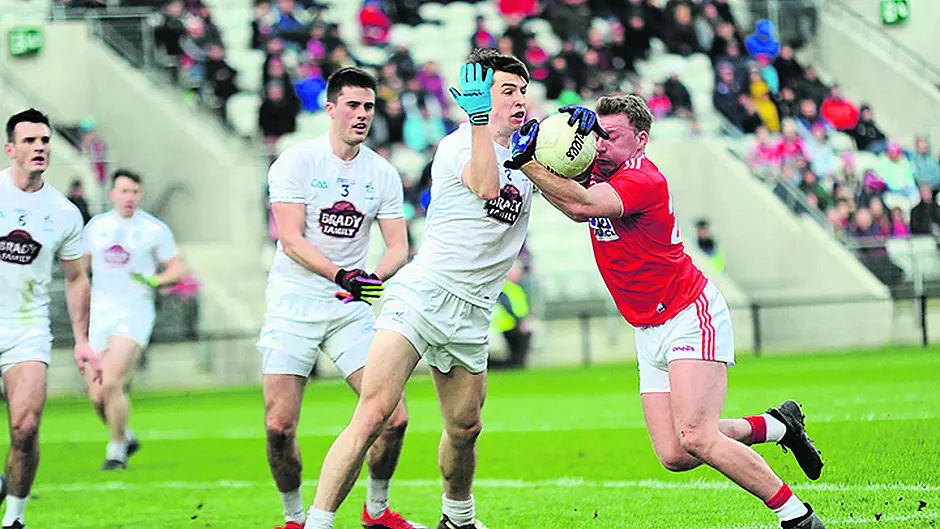They say that you don't get a house-building process right until the third time.
THEY say that you don’t get a house-building process right until the third time.
As someone who has gone through that, we can certainly agree that mistakes were made with the first iteration, but we are happy enough to live with the finished product rather than going through it once more, let alone twice.
Cork County Board may reflect on the advice too – the first Páirc Uí Chaoimh, opened in 1976, left an awful lot to be desired and the second version is a big improvement but with the large asterisk of cost overruns. Those in charge must be thankful for the debacle that is the new national children’s hospital project, which is making the Páirc look like great value.
We could labour the house-stadium comparisons by citing the importance of flooring and focusing on the problems with the pitch, but instead this preamble has been designed to comment on the Cork football team.
In construction, the first step is the laying of foundations, to strengthen the structure and ensure that it’s not blown away. Last summer, in two consecutive games, Cork were blown away, by Kerry and Tyrone, conceding a total of 6-38.
Before the start of the current campaign, manager Ronan McCarthy identified defensive openness as the key thing to work on as Cork looked to improve.
‘People talk about the championship,’ he says, ‘but we conceded 3-12 against Clare in last year’s McGrath Cup final, fair enough we won that game but we conceded 3-16 against Tipp in the first league game too, you’re not to going to win too many matches if that’s the concession rate.
‘It’s something we’ve worked on a lot, making ourselves more solid. We’ve a lot of forward talent and we don’t want to lose that attacking edge, but we want a better structure, to make ourselves more resilient when we come under pressure.’
Obviously, Fermanagh and Kildare are not of the standard of Kerry and Tyrone, and the league is a different animal to the championship, but, while Cork have only collected one point from two games so far, the scores-against column only reads 2-15.
There has been a noticeable improvement in defensive discipline, with wing-forwards Tomás Clancy and Mark Collins operating more or less as sweepers on Sunday against Kildare. In one three-minute period coming up to half-time, the Lilywhites held the ball through a series of phases without ever threatening to pierce the Cork 45, with no players inside the visitors’ 45.
It’s somewhat ironic, then, that after the sending-off of Fergal Conway, Kildare were the ones to adjust better to the change in numbers, counter-attacking well while sub Neil Flynn landed three big points.
One could also argue that Collins, who scored 1-25 in last year’s league, would be of more use closer to the opposition goal, but he’s a victim of his range of qualities – he uses the ball efficiently and his long passing can be asset from deep when Cork turn possession over.
And it is in the offensive regard that Cork now need to find an improvement which can match the increase in defensive tightness. Sunday was a day to forget for Luke Connolly and he’s likely to be back to his usual form next time out, but Brian Hurley will be suspended for the Clare game. While his brother Michael kicked five points from play against Kildare, he can’t be expected to carry the burden on his own in every game.
As good as it is to concede 2-15 in two games, Cork have only scored 0-18. It’s a natural result of focus on defending that the attacking play is not at its optimum level, but one would have expected a better output in the two matches. One thing Cork looked to try on Sunday was to make use of the attacking mark, with Connolly and Ruairí Deane doing well to win deliveries, resulting in a point in the case of the latter. In their win over Dublin first time out, Monaghan showed how the mark can be used in ways different to just landing high balls in to the edge of the square.
Given Deane’s prowess in the air, this is something which should be developed as a way to vary the play, especially against sides that are massed in deep ranks.
Kilmacabea’s Damien Gore wasn’t called upon on Sunday, but will be used again and there is an opportunity for him to stake his claim – he’s not afraid to take a shot, something all too rare on Cork sides in recent years.
People will look at a Cork team focusing on defending against non-elite teams and say that it’s a sign of weakness, but they are basing this view on what Cork used to be rather than what they are now, which is a mid-level Division 2 team.
We could all wear hats that say ‘Make Cork Great Again’ in the hope that that would reverse the last seven years, but sadly that would have no effect. Making them hard to beat is the first step towards making them win.









